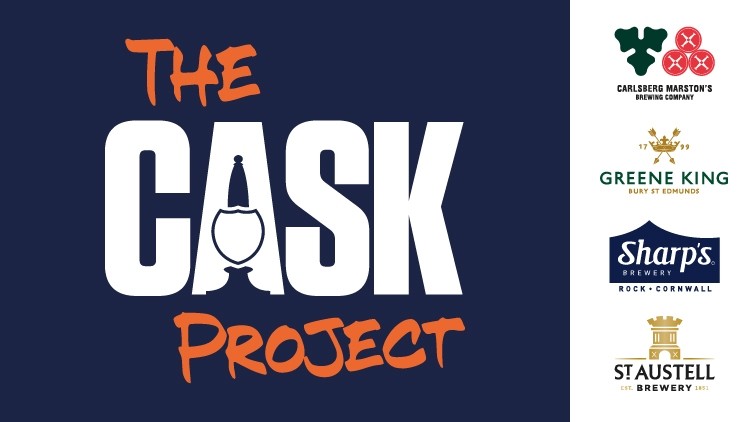the cask project
Cask can be ‘completely sublime’

Along with cask, it produces kegged draught beers too and ensures it stays diverse with bottled and canned beers for the UK market and overseas too.
Executive director of the North Yorkshire business Simon Theakston (pictured) answers a few questions on the plight of cask beer, why it is so important and what the future holds for it.
Theakston is a name associated with quality cask beers, what is the company’s feelings towards cask and the fact it has experienced drops in sales over recent times?
“For us, cask beer is the finest manifestation of Britain’s national drink, and when properly cellared, conditioned and dispensed, has the potential to be completely sublime.
“It is very common within the beer sector for the popularity of different beer styles to ebb and flow over time, but we believe that there will always be a vibrant cask market based on constant consumer rediscovery. While at the moment demand may be down, relative to other styles, it will only be a matter of time before we see its return.”
Do you find your beers sell best (and are more appreciated) in your heartland of North Yorkshire or do you have great sales across the UK, if so, where are the most popular places – and why is that?
“Historically, most cask brewers have always enjoyed a strong market presence in their localities. The same is true for Theakston as, although we enjoy trade all over the country, particularly with our Old Peculier brand, the north of England has always been our stronghold.”
What do you think makes a good pint of cask?
“There are multiple factors to get right, which is why cask ale is a fantastic example of the craftsmanship that goes into brewing and dispensing beer. For us, it’s the quality of ingredients; the texture, aroma, clarity and taste of the beer; the temperature and the quality of an individual pub’s cellar and hygiene regime.”
How important is delivery, storage, the serve and how long should a cask beer be on sale for?
“Delivery and storage are absolutely crucial to ensuring a good pint. The key is to keep the temperature of beer in the cask as close to the temperature of dispense throughout the journey from brewery to cellar.
“Additionally, good routine cellar management is a must, as well as ideally being able to sell a cask in three and a half days once opened. We would recommend a minimum of 2 x 9-gallon casks per pump per week.”
Is there anything Theakston thinks would improve sales of a product that is quintessentially British and probably shows the ultimate in skill versus anywhere else in the world?
“We think emphasising the freshness of cask beer would help sales, as it’s likely the freshest drink sold over any pub’s bar. We also believe that taxation on beer is currently too high and should be reduced to not only help the sale of beer but to also maintain the vital role that Britain’s pubs and bars play as hubs for the community.
“The industry also needs to do more to support licensees and their staff in terms of cask handling training.”
Theakston appears to produce a strong portfolio of new beers (or relaunches of its range such as Mild May), is that set to continue?
“While we are very proud of our range of well-established beers, we never want to rest on our laurels. We are always looking to develop new beers, styles and tastes to keep our sector innovative and vibrant.
“An example of this is our recently launched Summit Pale Ale, a cask beer specifically brewed to be served at a colder temperature, using a fist of New World hops to give a refreshing drinking experience which we hope will be especially attractive to customers previously unfamiliar with the cask sector.”
What do you see as the future for cask?
“Throughout our almost 200 years, we have always been strong advocates for cask, and there is no chance of that changing any time soon. We predict a positive future for the sector, based on freshness of product, taste, strong regional identities and centuries of combined national brewing experience.
“Ultimately, as long as there is demand for pub visiting, there will always be demand for cask ale.”







